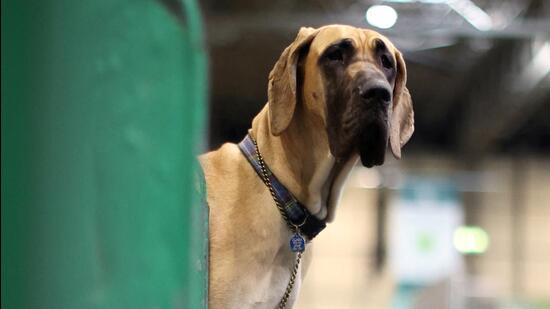Chew on this study: Dogs don’t stick to breed stereotypes!
The researchers, who started the project to study compulsive behaviour in dogs eight years ago, suggested that dogs don’t stick to some of the starkest of stereotypes attributed to various breeds
Ever come across a Great Dane with the unbridled (and uncharacteristic) energy of a Chihuahua? Or a Chihuahua as reserved as a Great Dane? New research involving genome sequencing now suggests that dogs don’t stick to some of the starkest of stereotypes humans have come to attribute to various breeds, especially when it comes to aggression and excitability.

Researchers from University of Massachusetts Chan Medical School, Broad Institute of MIT, and Harvard, and experts from International Association of Animal Behaviour drew the conclusion in a project that began eight years ago to study compulsive behaviour in canines, with responses from over 18,000 pet parents and the genome analysis of over 2,100 dogs.
“…Behaviour only subtly differentiates breeds. Breed offers little predictive value for individuals, explaining just 9% of variation in behaviour,” said the study, published in the journal Science on Thursday.
Among the traits that did not seem to be dependent on breed were aggression and excitability, although a couple – such as the tendency to howl and opening up to strangers — did seem to have some breed-specific association.
“One of the most recognisable behaviour [typically attributed to a breed] is the increased propensity of certain breeds to howl, like the Beagle and Siberian Husky,” said Elinor Karlsson, one of the researchers, in an interaction over a videoconference with journalists ahead of the release of the report.
The other traits were retrieving and playing with toys.
But what was hardly linked to breeds was a propensity for aggression, a trait that is often attributed to particular types of dogs, which has led to breed-specific laws in many countries. “We can say that when we looked at agonistic threshold, we were not seeing an effect of breed ancestry. In that point of view, it [breed specific laws] did not make sense to us,” said Karlsson.
The researchers said most traits instead are polygenic— influenced by a combination of genes that are found in various breeds — and are determined environmental factors, such as the conditions in which a dog grew up.
“For instance, we found particular genes associated with howling and with memory formation,” said Karlsson. The gene linked with memory formation was found more in dogs that were more social with humans.
Karlsson added that the team soon became aware that their findings went against typical perceptions. “We knew what we were finding was not consistent with the lived experiences of people. We find essentially no effect of a size on dog’s behaviour when controlled for a dog’s breeding environment,” she said, adding: “You can have a Great Dane with the same personality as a Chihuahua, and a Chihuahua that acts like a Great Dane”.
The evolution of dogs, the researchers said, can largely be regarded as having a turning point in the last 100 years, when humans began to breed specific types. Prior to that, dogs evolved from their wilder ancestors to become dogs when they began living near humans, stopped hunting, and became scavengers instead. During this period, the selection pressure — the factor that influences genetic evolution in one direction or another — was dictated by these changes, like the need to become less fearful of humans.
But this selection pressure changed. “In the last 100 years or so, since the Victorian era, modern breeding has changed the sort selection pressure,” said Kathryn Lord, one of the other researchers. In evolutionary terms, the study adds, it is a mere blink in the history of the canine species.
What this means is that some traits in today’s dogs can be traced back to their wilder ancestors, even though they are nothing like them.
“Howling and retrieving are two motor patterns [that trickle down] from their ancestors in wolves. Playing is manifestation of motor patterns linked with hunting that they direct at toys,” said Kathryn Lord, one of the other researchers.
“We do have to accept dogs are individuals. Each dog is a study of one. We want to accept our dogs who they are. Some breeds may fit lifestyles better than others but I don’t think it’s a good bet, for example, to say that I want a dog good with children so I will get X breed,” said Marjie Alonso, one of the other authors of the study and an animal behaviour specialist.
Alonso added that it is important to remember that a dog’s appearance will not determine its behaviour.
All Access.
One Subscription.
Get 360° coverage—from daily headlines
to 100 year archives.



HT App & Website






